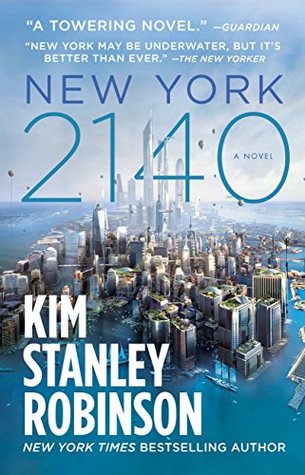More on this book
Community
Kindle Notes & Highlights
They published their papers, and shouted and waved their arms, and a few canny and deeply thoughtful sci-fi writers wrote up lurid accounts of such an eventuality, and the rest of civilization went on torching the planet like a Burning Man pyromasterpiece. Really.
So the people of the 2060s staggered on through the great depression that followed the First Pulse, and of course there was a crowd in that generation, a certain particular one percent of the population, that just by chance rode things out rather well, and considered that it was really an act of creative destruction, as was everything bad that didn’t touch them, and all people needed to do to deal with it was to buckle down in their traces and accept the idea of austerity, meaning more poverty for the poor, and accept a police state with lots of free speech and freaky lifestyles
What could have caused the ocean there to cool, one wondered through those decades, how mysterious, one said, and then got back to burning carbon.
History is humankind trying to get a grip. Obviously not easy. But
it could go better if you would pay a little more attention to certain details, like for instance your planet.
But wars too are good for finance, and a few more happened in the twenty-second century, sure. Hundreds of millions of people were suddenly refugees, and that’s a lot of terrorists to suppress.
The rich, being people too, doing all they could to cope with the night sweats and zombie terrors of making fourteen hundred times as much money as the people working for them, made sure to finance the best personal and corporate security that money could buy, and mercenaries from all the refugee wars were numerous and available. This was good: when you are a small minority and you own the majority’s wealth, security is naturally a primary consideration.


